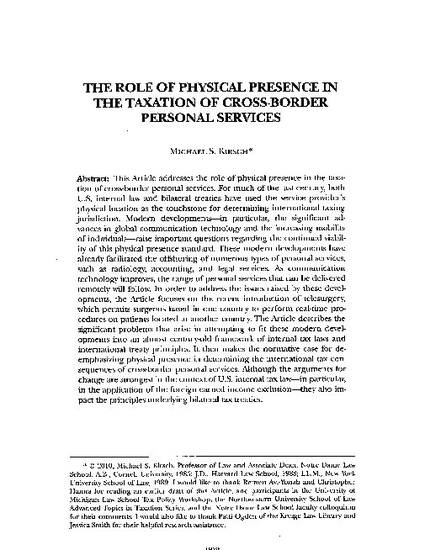
This Article addresses the role of physical presence in the taxation of cross-border personal services. For much of the last century, both U.S. internal law and bilateral treaties have used the service provider’s physical location as the touchstone for determining international taxing jurisdiction. Modern developments - in particular, the significant advances in global communication technology and the increasing mobility of individuals - raise important questions regarding the continued viability of this physical presence standard.
These modern developments have already facilitated the offshoring of numerous types of personal services, such as radiology, accounting, and legal services. As communication technology improves, the range of personal services that can be delivered remotely will follow. In order to address the issues raised by these developments, the Article focuses on the recent introduction of telesurgery, which permits surgeons based in one country to perform real-time procedures on patients located in another country.
The Article describes the significant problems that arise in attempting to fit these modern developments into an almost century-old framework of internal tax laws and international treaty principles. It then makes the normative case for de-emphasizing physical presence in determining the international tax consequences of cross-border personal services. While the arguments for change are strongest in the context of U.S. internal tax law - in particular, in the application of the foreign earned income exclusion - they also impact the principles underlying bilateral tax treaties.
Available at: http://works.bepress.com/michael_kirsch/11/

Reprinted with permission of the Boston College Law Review.